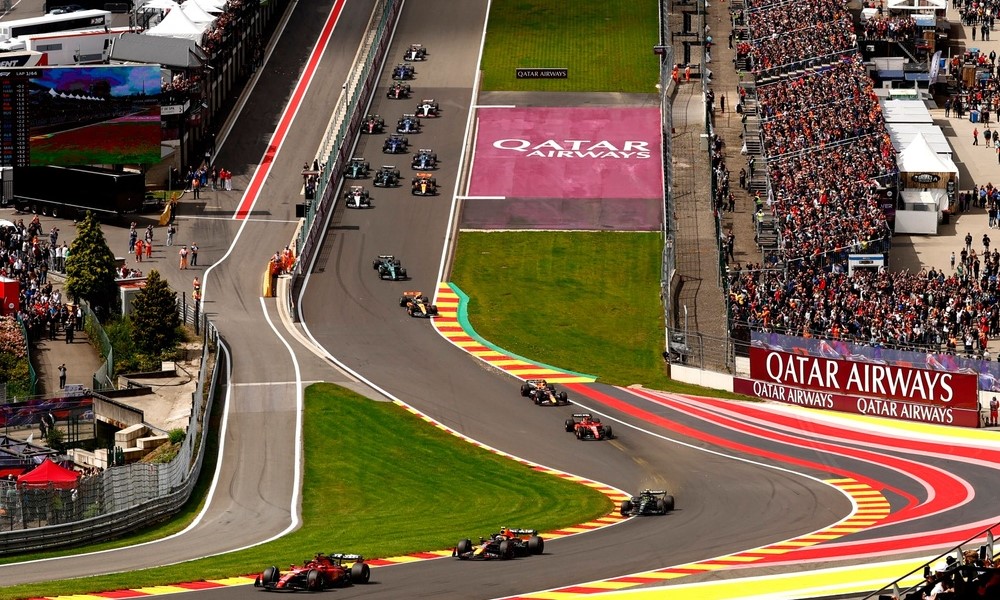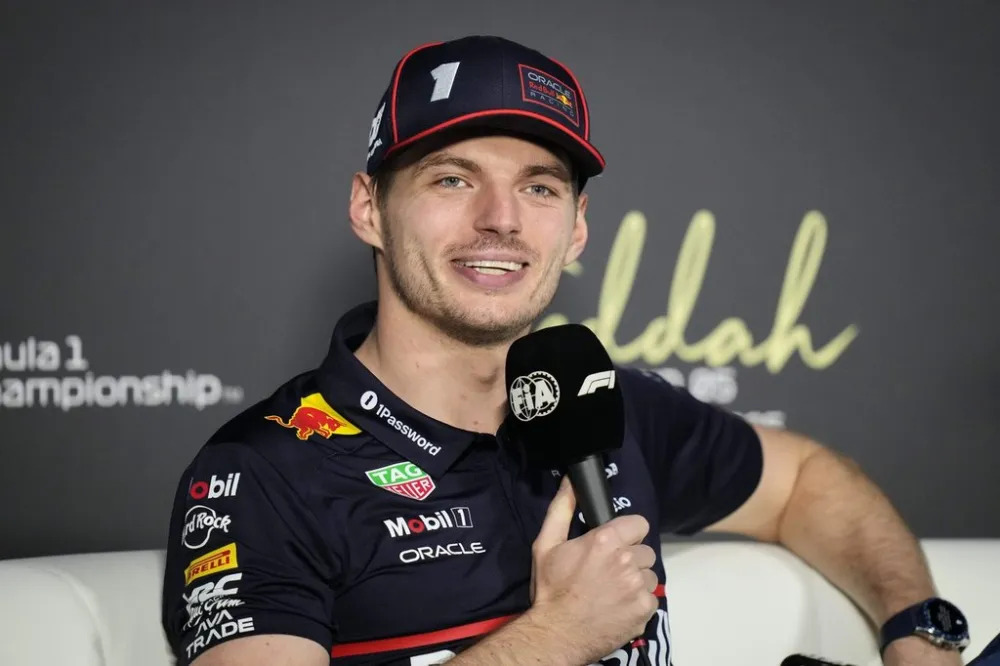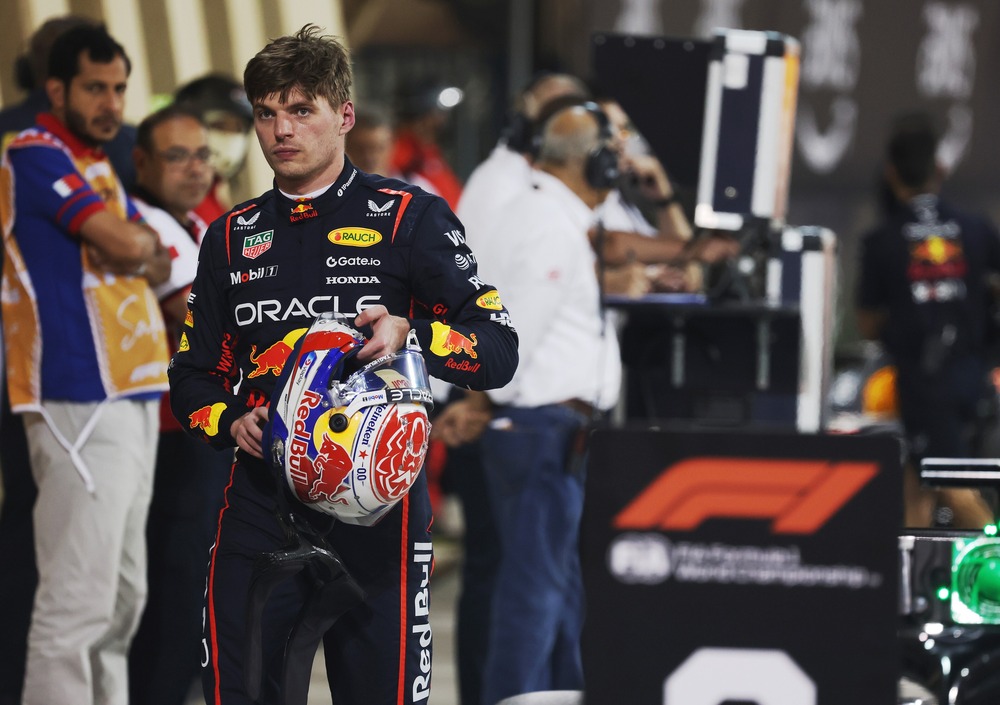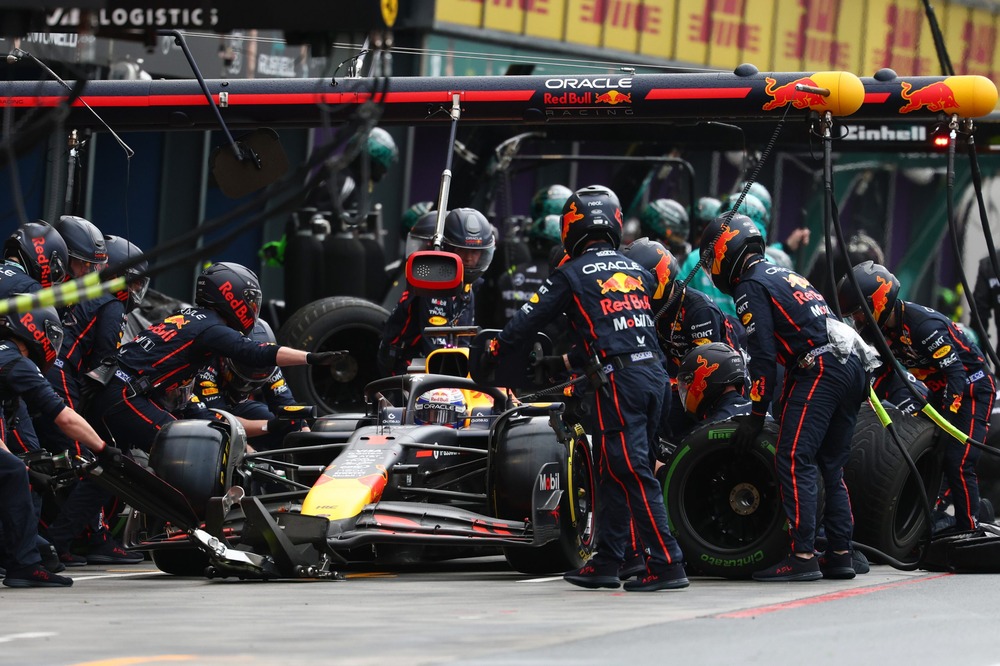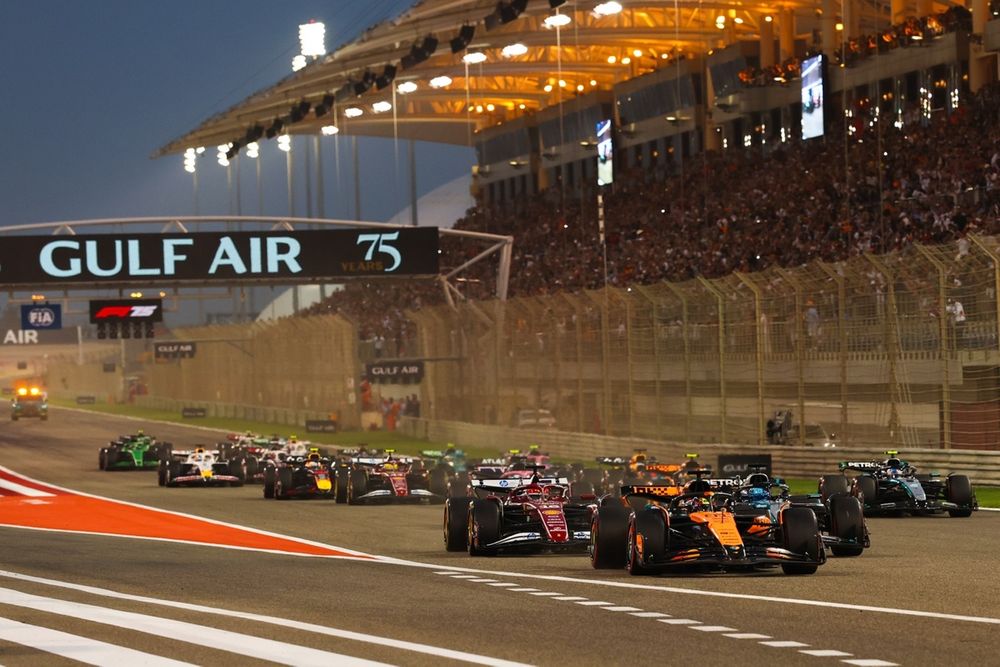Stefano Domenicali has confirmed plans to introduce European F1 race rotation so as to allow select Grand Prix events to alternate on the calendar.
This strategic move comes in response to the sport’s burgeoning popularity and the increasing demand from various regions eager to host races.
With the current calendar already boasting a record 24 races, the introduction of a rotational system aims to maintain F1’s strong European presence while accommodating new venues and expanding its global footprint.
During a recent conference call with Liberty Media investors, Formula 1 CEO Stefano Domenicali revealed that discussions regarding European F1 race rotation are well underway.
“We have some news to share very, very soon with regard to the possibility in the mid-term to have some rotational European Grand Prix and some other new options coming later,” he said.
“This is something that, of course, we will clarify in the due course.”
The rationale behind implementing the European F1 race rotation is multifaceted. As Formula 1 continues to grow in popularity, numerous countries are expressing interest in hosting races, creating a situation where existing venues may need to be rotated out to accommodate new locations.
READ ALSO: F1 2025 calendar released with Australian Grand Prix as season opener
Domenicali emphasized the need for balance, stating that any decisions will consider both economic benefits and market growth potential.
“It is true that we have a large demand of new possible venues that want to come in,” he explained. “Our choice will always be balanced between the right economical benefits that we can have as a system and also to leverage in the growth on the market that we can see potential that will be beneficial for us to grow even further our business.”
Currently, the European segment of the F1 calendar includes ten races, including iconic venues such as Zandvoort, Spa-Francorchamps, Imola, and Monza. However, several of these circuits face expiring contracts by 2025, leading to speculation about which tracks will remain on the calendar and which may be rotated out.
Notably, Barcelona’s contract is set to end at the same time as Madrid is confirmed to join the F1 calendar in 2026, raising questions about how these two Spanish venues will coexist.
The challenge of implementing a rotational system is compounded by existing long-term contracts with circuits like Silverstone and the Hungaroring, which extend beyond 2030. Nevertheless, Domenicali remains optimistic about the potential for flexibility within the schedule.
As Formula 1 navigates this transition, it must also contend with logistical considerations as the current Concorde Agreement caps the number of races at 25 per season.
Stefano Domenicali has expressed satisfaction with maintaining a balanced calendar of 24 races, which allows teams and organizers to manage logistics effectively while exploring new opportunities for growth.
“We believe that the balance we have in terms of numbers is the right one, so 24 is the balanced number that we feel is right,” Domenicali confirmed. “I do believe that all the propositions that are coming on our table is just giving us the possibility to make even better choices for our future.
“So as always, we need to be balanced, knowing that we cannot follow only the pure direct financial proposition, because that is different from region to region, but it’s up to us to propose to our stakeholders the right choice.
“I think that we are in a good momentum to make sure that the strategy for the future is even stronger, and that’s why we are so confident about the fact that this will help to enhance our platform on the sport, on social and business perspective.”
The introduction of European F1 race rotation could also enhance fan engagement by bringing fresh experiences to different regions. By rotating select Grand Prix events every other year or bi-annually, Formula 1 can maintain excitement around the races while introducing fans to new venues and cultures.
This approach not only caters to existing fans but also attracts new audiences who may not have had access to Formula 1 events previously.
Looking ahead, Domenicali hinted at further announcements regarding the European F1 race rotation schedule in the coming months. He indicated that as negotiations progress with various stakeholders, including teams and circuit owners, Formula 1 will clarify its plans for future seasons.
“I do believe that all the propositions that are coming on our table are just giving us the possibility to make even better choices for our future,” he stated.
In addition to focusing on Europe, Formula 1 is also eyeing opportunities in emerging markets around the world. Potential new venues include a second race in Saudi Arabia at the under-construction Qiddiya Circuit and a return to Africa with Rwanda as a possible host country.
The Argentine Grand Prix has also been mentioned as a potential revival option. These developments highlight F1’s commitment to expanding its global presence while ensuring that its European roots remain strong.
As this ambitious plan unfolds, fans can expect an exciting evolution of the F1 calendar that balances tradition with innovation.

